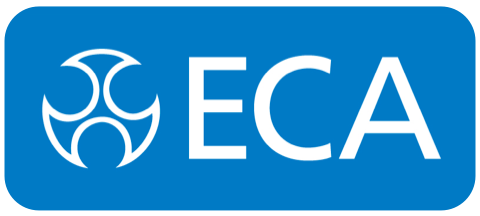Environmental issues are having an increasing effect on contractors' business. While some of these issues can pose practical problems, there are considerable opportunities. For example, while it is increasingly costly to dispose of waste, there are plenty of ways for you to minimise operational waste and cut operating costs. You can also show clients how to manage their whole move effectively.
Read ECA guidance on the Update on the Energy Savings Opportunity Scheme (ESOS)
Please view the sub-categories below for specific environmental operational information.
It is increasingly important to monitor and reduce the environmental impacts of contractor operations. The ISO 14001 Environmental Management System (EMS) Standard provides a solid basis for an organisation’s EMS, however management procedures geared towards environmental performance can also be integrated into other mainstream management procedures. For example, environmental audits can be part of the wider operational audits, and environmental training can be part of overall staff induction and training.
An important aspect of integrating environmental management is encouraging a culture of good environmental practice among employees and increasingly, sub-contractors. This requires regular communication and clear commitment.
Planning your EMS and developing an environmental policy
The defining management systems cycle of an EMS is: plan what you are going to do, do what you planned to do, check whether you did what you planned to do, and act to make necessary or opportunity improvements.
Areas you may wish/need to consider under your environmental management responsibilities include:
- Carbon management (overall)
- Supply chain engagement
- Waste management
- Transport management
- Waste reduction and improved efficiency
There are business opportunities linked to waste minimisation (based on re-use, recycling and reduction of raw material use) and it is increasingly a 'licence to operate' as well as a ‘duty of care’ legal requirement.
How we can help
Login below for more Member-only free resources.
Recovery of electrical and electronic waste (EEE)
The Waste Electronic and Electrical Equipment (WEEE) Regulations 2006 set up a national regime to ensure the recovery of lamps from non-household premises. Since then, WEEE compliance has broadened to enable the recovery of all types of WEEE.
Lamp recovery
Under the WEEE Regulations, certain lamps (fluorescent tubes and CFLs) are classified as a sub-category of WEEE (these are also hazardous waste). This means they must be recovered and not sent to landfill.
Compliance schemes
'Compliance schemes' were set up with funding from a product levy to facilitate free lamp recovery in two basic situations:
- return of lamps to a distributor affiliated to a 'compliance scheme'
- large lamp replacement services/projects.
WERCS can collect all 14 categories of WEEE, including HVAC equipment, sockets and electrical furnishings.
Recolight is a leading national compliance scheme for lamps.
How ECA can help
Login below for access to CSR support contact details.
Many ECA Members can win more business and/or improve margins by:
- Exploiting new low carbon energy installation and service business
- Improving waste management
- Improving process efficiency (e.g., travel)
Possible benefits that may arise from engaging with environmental issues include:
- Environmental 'know how' can help when prequalifying and tendering
- Operational 'eco-efficiency' measures (savings on waste etc), which add to the bottom line, with short or no payback time, and cut carbon impacts
- Members' 'green' credentials –e.g., being seen as a source of advice on issues such as energy efficiency/carbon savings and dealing properly with waste electrical equipment – this can provide further demarcation between ECA Members and other contractors
'Green Case Studies' can help to lead the industry by example
The ECA team needs your help to develop a library of examples (both domestic and commercial) which Members have worked on or were significantly involved in, relating to:
- reducing energy/carbon via engineering technology such as solar PV or lighting: and
- through operational management/processes such as effective waste management or green product/supply chain initiatives.
How ECA can help
If you would like your activity to be considered for use in demonstrating ECA's Membership expertise and commitment to sustainability, login below for access to CSR support contact details.


